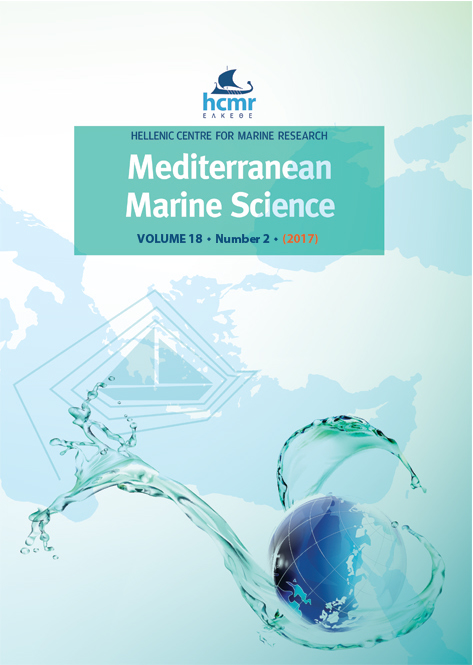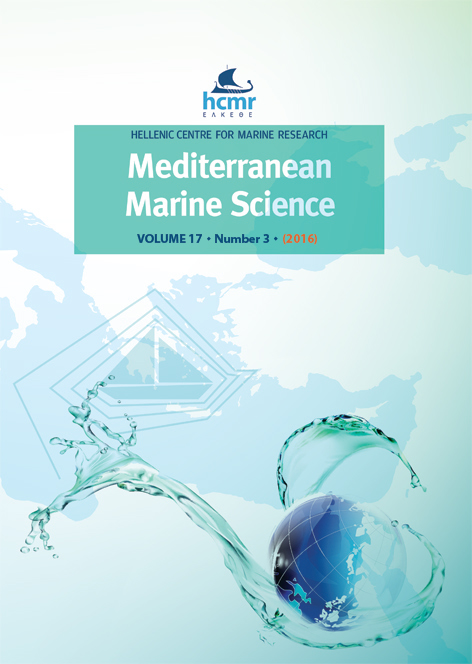Spatial distribution modelling of the endangered bivalve Pinna nobilis in a Marine Protected Area
Abstract
The spatial distribution of Pinna nobilis densities have been analysed through a geostatistical approach in the MPA of Cabrera National Park, Balearic Islands (Spain), Western Mediterranean Sea. Regression kriging was used to model the effect of environmental variables on the density of living individuals of P. nobilis and generate a predictive map of its distribution within the MPA. The environmental variables considered for the model were: depth; slope; habitat type and heterogeneity; wave exposure; and MPA zoning. A total of 378 transects were randomly distributed with a total of 149,000 m2 surveyed at a depth range from 4.2 to 46 m. The recorded P. nobilis densities are among the highest in the Mediterranean Sea. With respect to the prediction model, results indicate that benthic habitats play a key role in the spatial distribution of P. nobilis, with higher densities in seagrass meadows of Posidonia oceanica. The fan mussel population density peaked at 9 m depth, decreasing with depth. Also, decreasing densities are expected with increasing exposure to waves. The predicted map shows some hotspots of density different in size and distributed along the MPA, and provides valuable information for the spatial conservation management of this species.
Article Details
- Come citare
-
VÁZQUEZ-LUIS, M., MARCH, D., ALVAREZ, E., ALVAREZ-BERASTEGUI, D., & DEUDERO, S. (2014). Spatial distribution modelling of the endangered bivalve Pinna nobilis in a Marine Protected Area. Mediterranean Marine Science, 15(3), 626–634. https://doi.org/10.12681/mms.796
- Fascicolo
- Vol 15, No 3 (2014)
- Sezione
- Research Article
Authors who publish with this journal agree to the following terms:
- Authors retain copyright and grant the journal right of first publication with the work simultaneously licensed under a Creative Commons Attribution Non-Commercial License that allows others to share the work with an acknowledgement of the work's authorship and initial publication in this journal.
- Authors are able to enter into separate, additional contractual arrangements for the non-exclusive distribution of the journal's published version of the work (e.g. post it to an institutional repository or publish it in a book), with an acknowledgement of its initial publication in this journal.
- Authors are permitted and encouraged to post their work online (preferably in institutional repositories or on their website) prior to and during the submission process, as it can lead to productive exchanges, as well as earlier and greater citation of published work (See The Effect of Open Access).








